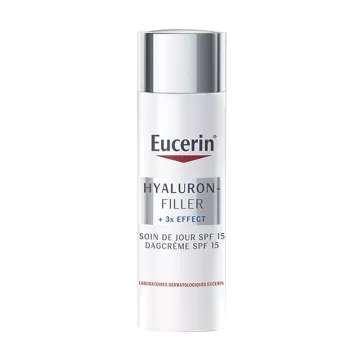
What is sodium hyaluronate?
Sodium hyaluronate is the salt form of hyaluronic acid, a natural component of skin, joints and connective tissue. It is used in cosmetics, aesthetic medicine and joint health for its moisturizing, plumping and protective properties.
Its small molecular size enables it to penetrate deeper into the skin and tissues, providing intense hydration and enhanced anti-aging action compared to conventional hyaluronic acid.
What are the benefits of sodium hyaluronate?
Sodium hyaluronate is recognized for its moisturizing, regenerating and protective effects:
How do I use sodium hyaluronate?
Sodium hyaluronate is used in a wide range of cosmetics, medical treatments and dietary supplements.
In cosmetics (serums, creams, moisturizing masks)
To deeply moisturize the skin → Apply a sodium hyaluronate-based serum before moisturizing cream.
For an anti-aging, plumping effect → Use a hyaluronic acid-enriched skincare product morning and night.
Application tip: Apply to slightly damp skin to improve penetration and prolong hydration.
In aesthetic medicine (intra-articular or cutaneous injections)
In osteoarthritis treatment → Injected into joints to improve lubrication and reduce pain.
In wrinkle filling → Used in aesthetic medicine to plump skin and restore facial volumes.
In eye drops
To relieve dry eyes → Hydrates the cornea and protects against irritation caused by screens and contact lens wear.
As a dietary supplement (hyaluronic acid capsules or powder)
For overall hydration and protection → Helps strengthen skin, joints and connective tissue.
Recommended dosage: 50 to 200 mg per day as needed, as a 1-3 month course of treatment.
Is sodium hyaluronate more effective than hyaluronic acid?
Yes, because of its greater solubility and ability to penetrate the skin more deeply, sodium hyaluronate :
Hydrates more intensely, reaching deeper layers of the epidermis.
Faster absorption and greater stability.
Reinforces the skin barrier without leaving a greasy film.
It is often preferred in moisturizing serums and anti-aging skin care products for its enhanced efficacy.
Is sodium hyaluronate good for osteoarthritis and joints?
Yes, used in intra-articular injections or dietary supplements, it :
Lubricates joints, reducing pain and inflammation.
Improves flexibility and mobility, particularly in cases of osteoarthritis of the knee.
Prevents cartilage degradation, helping to slow the progression of osteoarthritis.
It is often recommended by rheumatologists and physiotherapists for people suffering from chronic joint pain.
What's the difference between sodium hyaluronate and hyaluronic acid?
Sodium hyaluronate → A more stable, lighter form that is better absorbed by the skin and tissues.
Hyaluronic acid → A thicker, more viscous form, used mainly in injections and more occlusive care products.
Sodium hyaluronate is therefore preferred for everyday skin care, while hyaluronic acid is favored for aesthetic injections.
Where to buy quality sodium hyaluronate?
Sodium hyaluronate products are available in :
Pharmacies and parapharmacies → Serums, moisturizers, eye drops.
Specialized cosmetics stores → Anti-aging and plumping treatments enriched with sodium hyaluronate.
Food supplement stores → Capsules and powders for skin, joints and general hydration.
Aesthetic and dermatological clinics → Intra-articular injections and hyaluronic acid-based anti-wrinkle treatments.
Choose alcohol-, silicone- and fragrance-free formulas for better skin tolerance.
Does sodium hyaluronate have any contraindications?
Although well-tolerated, sodium hyaluronate should be used with caution in certain cases:
Avoid use if you are allergic to any component of the product.
Do not apply to open wounds or skin infections.
Injections must be carried out by a healthcare professional to avoid any risk of inflammation.
Consult a doctor before prolonged oral use, especially for people undergoing medical treatment.
Proper use of sodium hyaluronate allows you to take full advantage of its moisturizing and protective benefits.